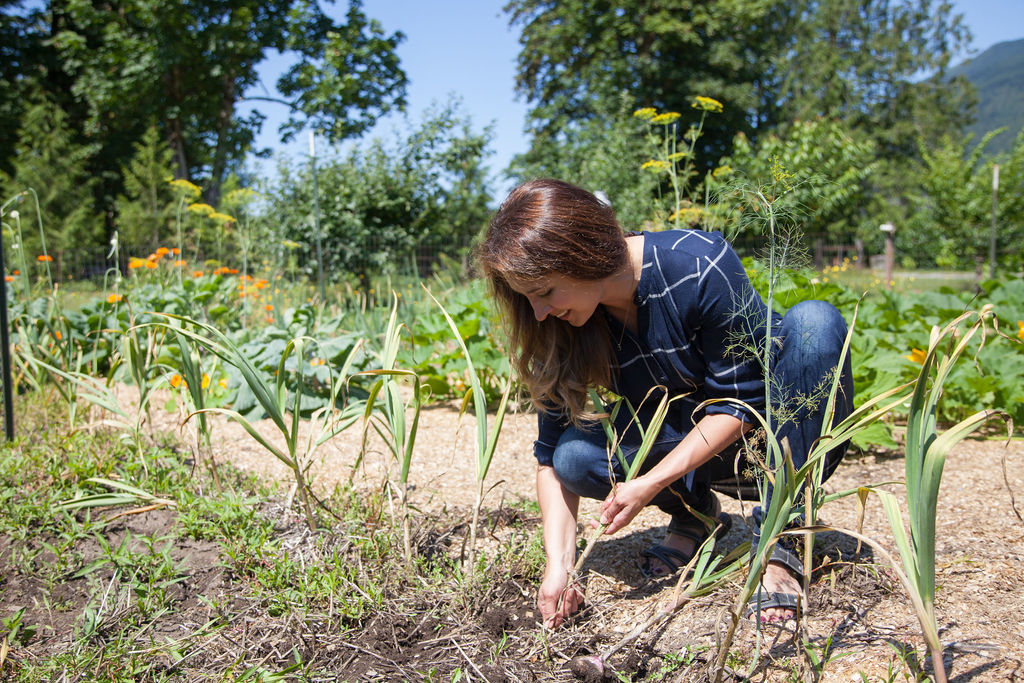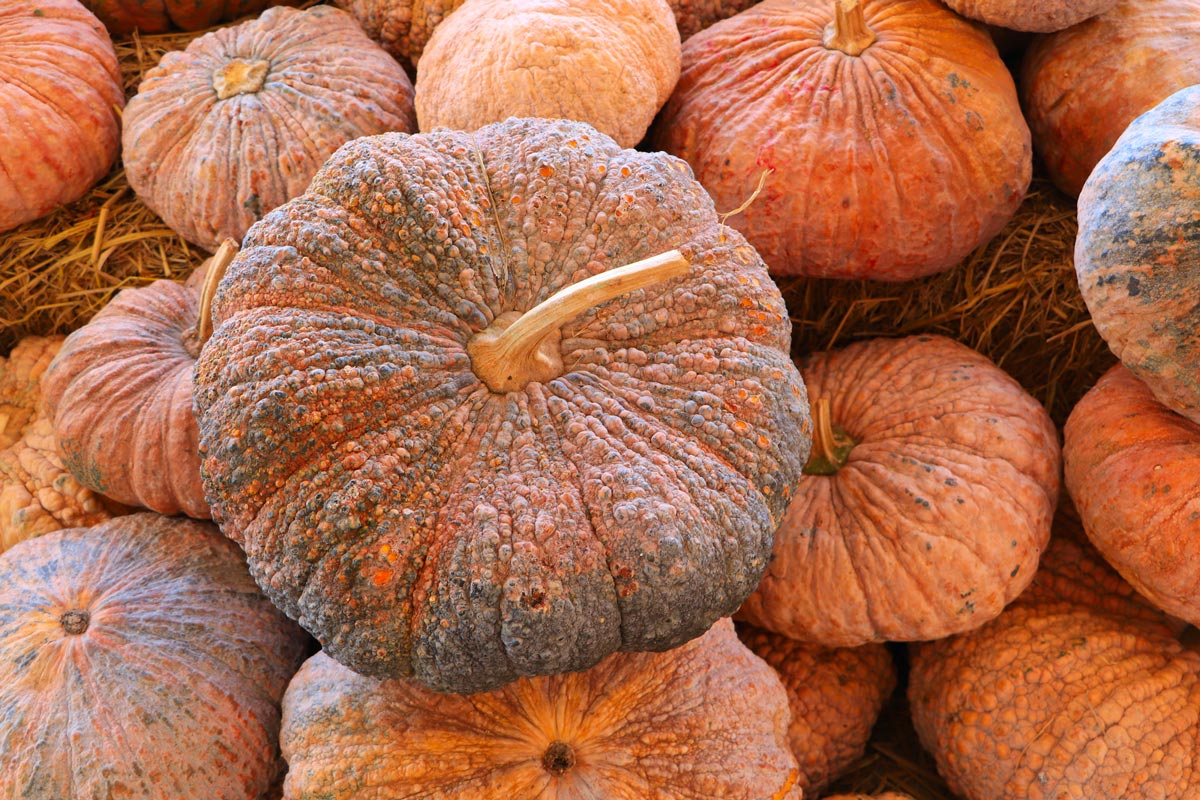If you’re wondering how to utilize sloped or shady areas of your property, how to utilize animals to maintain the wooded areas, and how to prioritize homestead projects, then this is the podcast for you!
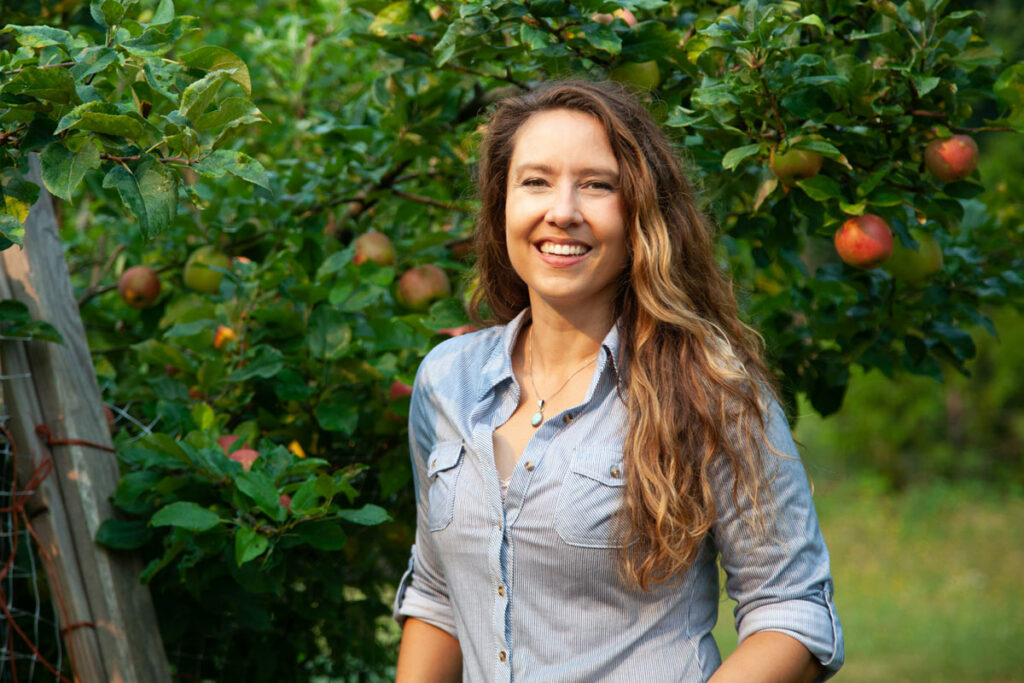
Today’s Pioneering Today Podcast (episode #377) is a live coaching call I did with Briana-Jo, a member of the Pioneering Today Academy, came to me with her questions and I gave her my best responses.
Natural Remedies Made Simple

Start your home apothecary with confidence—even if you’re brand new. Learn how to choose the right herbs for your body using the simple principles of herbal energetics.
Discover how warming, cooling, drying, and moistening herbs affect your body—so you can stop guessing and start making remedies that actually work.
About Briana-Jo
A while back, Briana-Jo moved onto her grandparent’s property to help out as her grandfather started having health issues.
In 2018 Briana-Jo picked up her first pack of seeds (they were green beans, which her family loves), and the rest is history.
Now, three years into her journey, she’s looking for more guidance on how to maximize the property she’s on, including how to utilize sloped areas, timber/shady spots and how to maintain it all while working 30 miles away at a full-time day job.
She’s looking for tips on where to start to make a maximum impact toward the goals she has for this property.
This is a girl after my own heart because, when I was working as a Pharmacy Technician, I had pretty much the same schedule and commute, all while trying to grow and maintain a working homestead with my family.
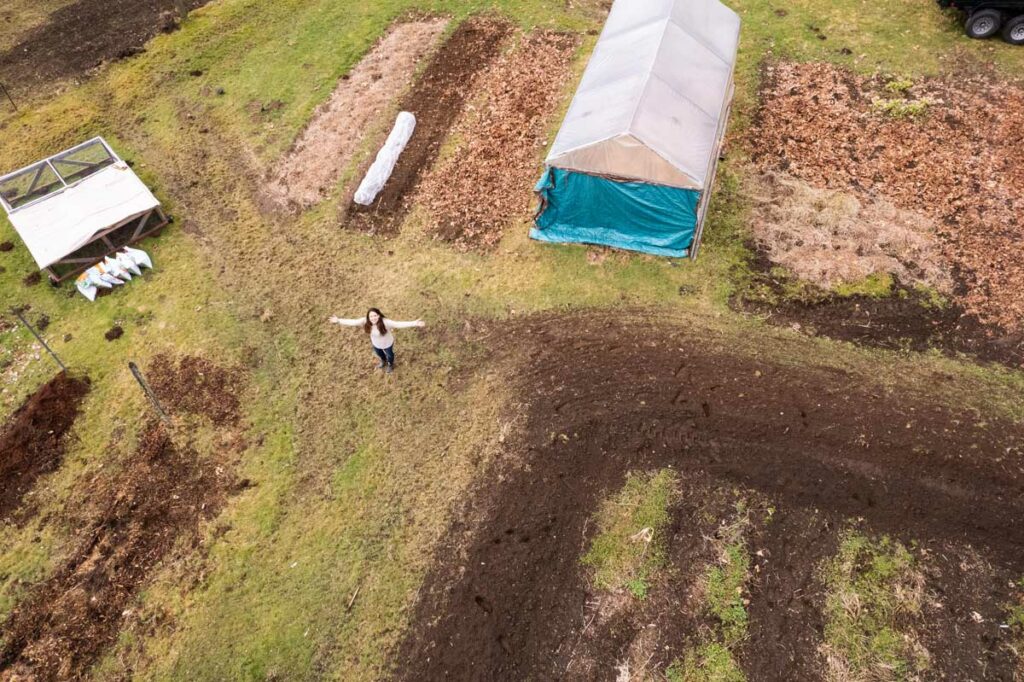
How to Prioritize Projects
Briana-Jo shared that she has a handful of projects she wants to accomplish and just doesn’t know where to start.
Briana-Jo’s Project List
- She wants to build a fence to keep deer out of the garden (as they ate many of her crops last summer).
- She wants to organize the garage so she doesn’t waste money buying supplies she knows she’s already purchased.
- She wonders if she needs to create some kind of root cellar for additional food storage. Since the home she’s living in is currently set above 70°F, fresh food storage isn’t conducive to this temperature for storing long-term. Briana-Jo likes to buy in bulk from a local farmer those items she’s not growing enough for the year on her own. Having storage spaces is key, especially for potatoes and onions.
- She also wants to replace the carpet in the house because the cats continually get infested with fleas.
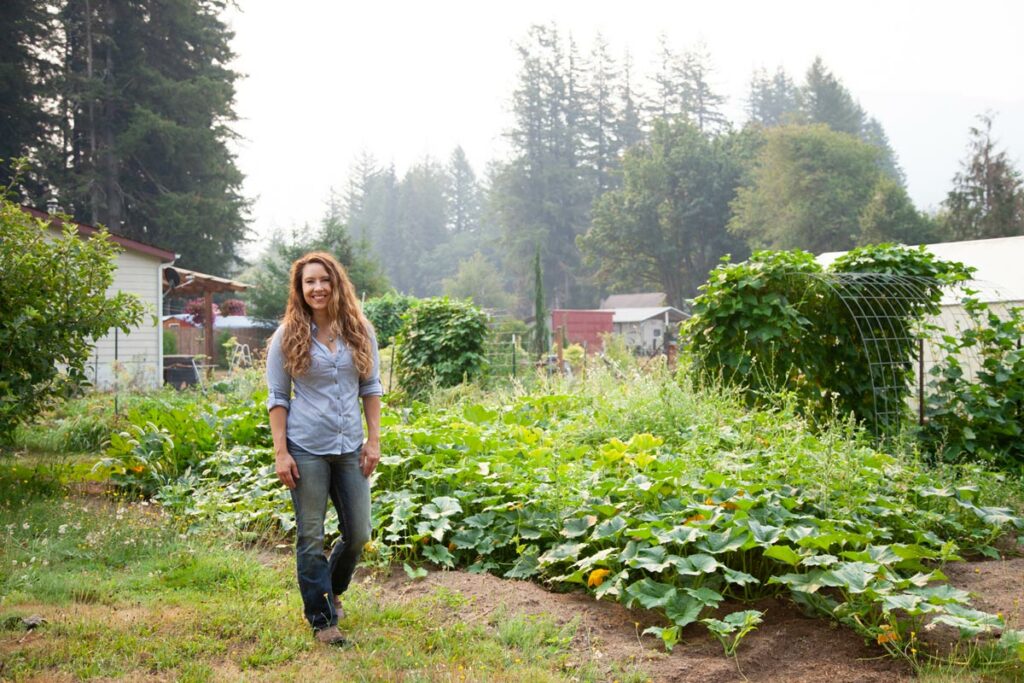
My Suggestions
Prioritizing the projects is the first step in knowing where to start. But knowing what takes priority can be hard to figure out. So how do you prioritize projects?
First, you look at the season. Since the garden is in a dormant state right now, we don’t have to worry about getting the garden fenced in. That should have a plan put in place in early spring.
This plan should include a materials list, when you need those materials on hand, how long it will take to build the fence, etc.
Second, you look at what’s most important to you. This allows us to turn the immediate focus toward the garage or the flooring inside the house.
Because the cats have also been dealing with constant reinfection of fleas, then this immediately makes the floor the immediate priority.
With the garage, once the flooring is replaced, this task can be broken down into sections. By splitting the garage up into bite-sized zones, you can accomplish this task in smaller chunks of time.
If anyone wants to declutter their home, check out this decluttering month-by-month blog post and this post on keeping your home clutter-free.
By organizing your projects into the season and what’s most important to you, it’s pretty easy to go from there.
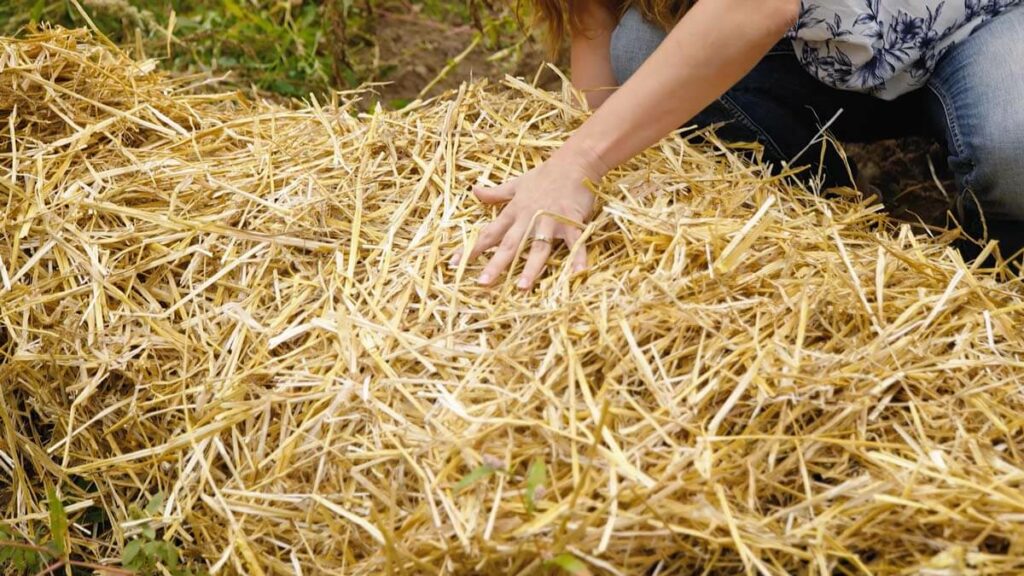
As for Briana-Jo building a root cellar, I don’t think this is necessary. There are so many great ways to store vegetables without a root cellar, including using the garden itself! This is how we store our potatoes all year without a root cellar.
Also, when buying onions for long-term storage, it’s important that they’re actually storage onions. Generally speaking, sweet onions and purple onions will not store well. Choosing the correct variety of onions is key in keeping them all year.
Also, see if you can purchase onions with their stems still on, this helps them last longer. Finally, making sure the onions are cured correctly is crucial when storing them long-term.
Building a root cellar does not fall into the priority for now because we aren’t harvesting crops from the garden. This is a project to focus on having completed (if needed) by the end of summer.
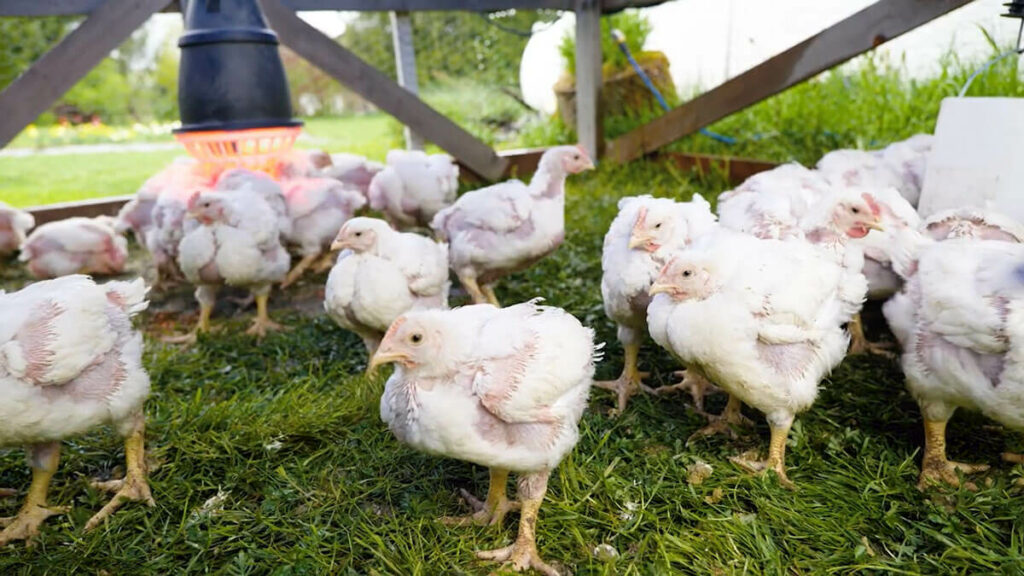
Raising Meat Birds
Briana-Jo wants to raise meat birds, but the only area for her to do so is over a drain field. She wonders if this is OK.
Yes! Because the waste field is built properly and underground, the chickens will be just fine.
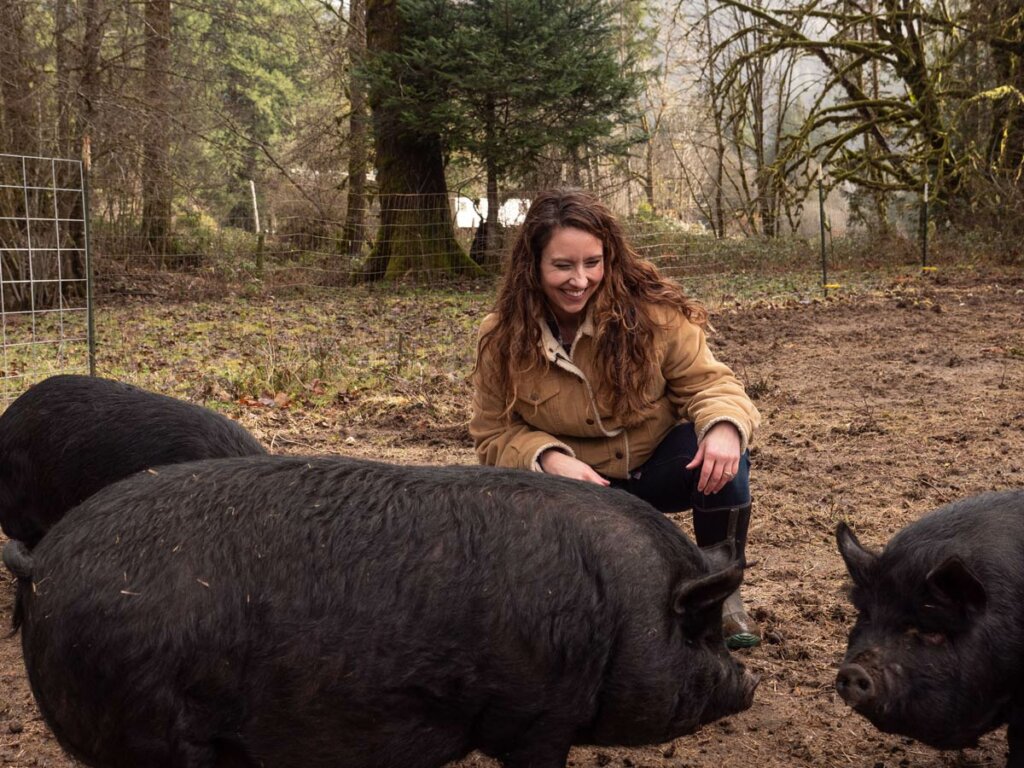
Keeping Pigs in the Woods
Briana-Jo wonders if she can raise pigs in the forest.
Raising pigs to help clear the forested/wooded areas is a great way to create a permaculture homestead. We actually raised American Guinea Hogs and they were great at clearing wooded areas.
Do consider that this breed is a very great lard breed. It’s not, however, going to give a large yield of meat. You can listen to this podcast I recorded on our reasons not to raise American Guinea Hogs again here.
We’ll be raising Herefords again and possibly trying the Idaho pasture pigs.
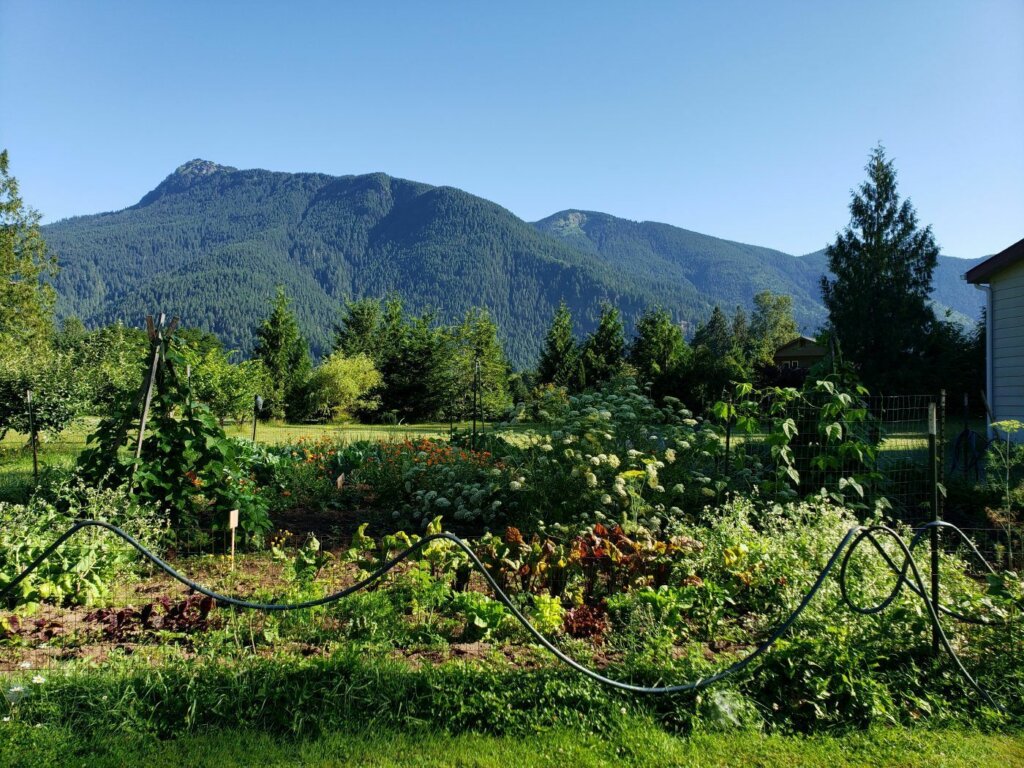
Utilizing Shady Areas for Gardening
Briana-Jo also wondered if she could utilize some of the shadier areas of her property to grow any crops. Growing brassicas in the shady areas of the homestead is fantastic. It saves the full-sun areas for the tomatoes and peppers is a great way to expand your growing spaces.
I talk a lot about maximizing garden space by growing vertically here. You can learn so many more gardening tips by checking out my gardening tasks by month series here.
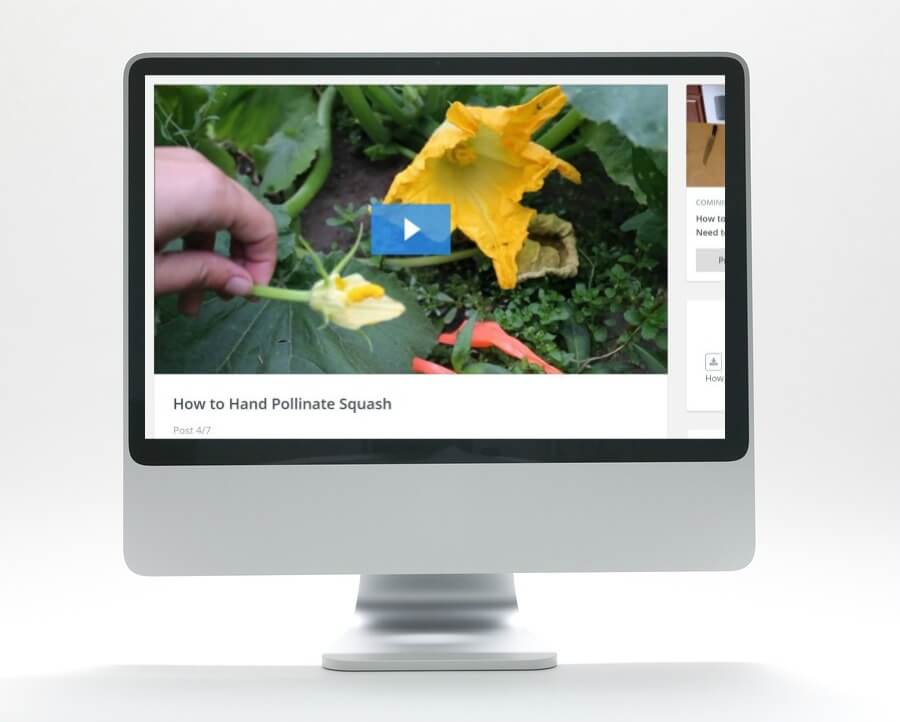
Pioneering Today Academy
If you found this podcast helpful and would like a chance to have a one-on-one call with me, or learn more gardening and homestead advice from us inside the Academy, you can click here and sign up for the Pioneering Today Academy waitlist. The doors open twice a year and will be opening up again soon!
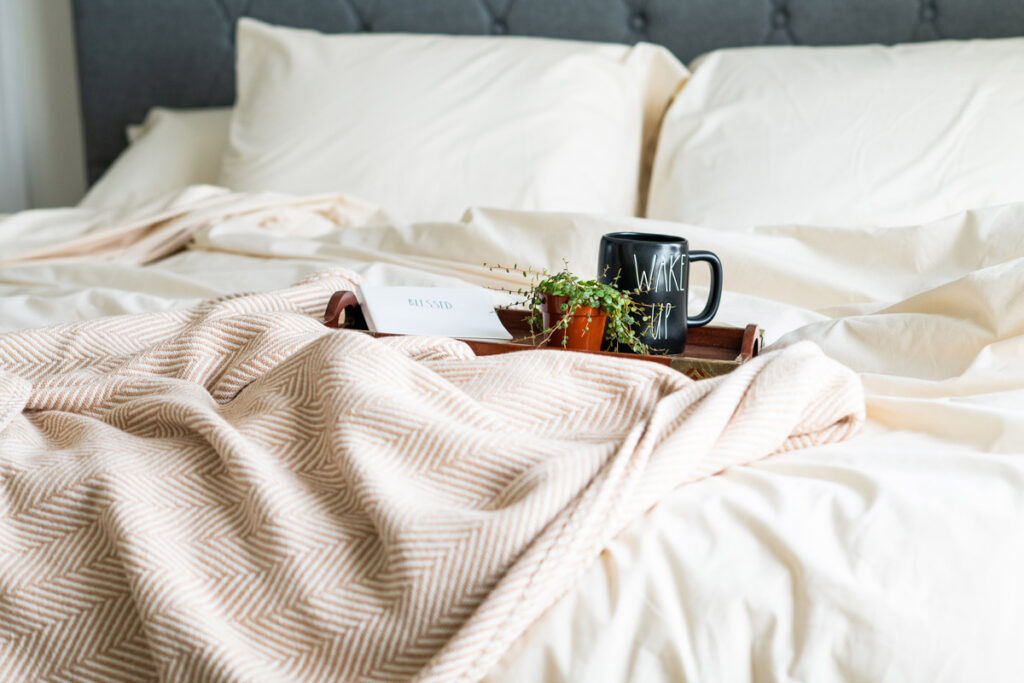
American Blossom Linens (Blankets, Towels & Sheets)
I’ve shared my love of my American Blossom Linens before, but let me just say, the more I use them, the more I love them! Next on my list are some of their towels and the cozy throw!
They are actually the sponsor for this podcast episode. They’re 100% made in the USA and have been in business for over 120 years. American Blossom Linens makes 100% organic cotton sheets, blankets and towels.
This past summer, I received my first set of sheets and was immediately impressed. They kept us cool during the summer months, and every time I went to wash them, I just couldn’t get myself to put on one of my old sets of sheets.
American Blossom Linens offers a two-year risk-free trial on their products. So go and snag yours and get an additional 20% off with coupon code “PioneeringToday20” at checkout.
More Posts You May Enjoy
- New Gardening Techniques & Varieties to Grow
- Soil Remediation – How to Fix Tainted Soil
- Wood Chips for Garden Mulch (Beneficial or Not?)
- Science-Based Companion Planting Strategies for a Healthier Garden
- How to Grow a Large-Scale Garden Without Acreage
- Homesteading With Special Needs Children
- Troubleshooting Chicken Health & Best Herbs for Chickens
[fusebox_transcript]
